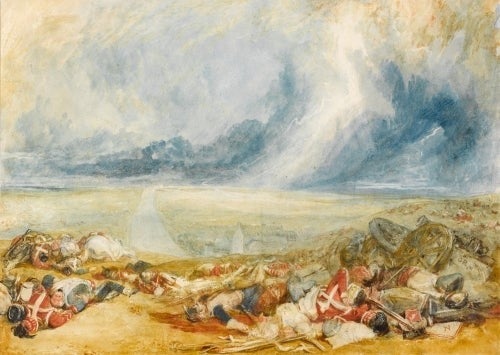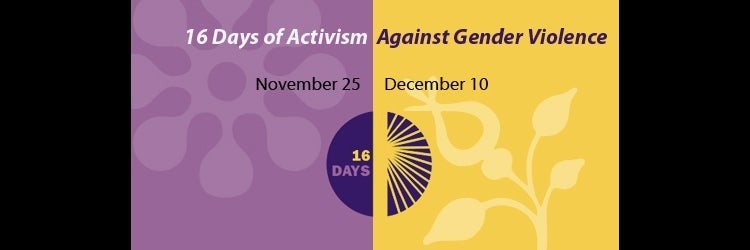Editor:
Brandon Sweet
University Communications
bulletin@uwaterloo.ca
Waterloo experiment heads to International Space Station
A spacecraft carrying supplies for a new physiology experiment led by a University of Waterloo researcher launched to the International Space Station (ISS) yesterday afternoon.
Professor Richard Hughson, of the Faculty of Applied Health Sciences and the Schlegel-UW Research Institute for Aging, leads the Vascular Echo experiment, which will link changes in astronauts’ hearts and blood vessels with specific molecules in the blood to determine why astronauts experience conditions that mimic aging-related problems and chronic diseases on earth.
The findings will help identify important indicators for chronic disease and assist with the development of early interventions for people on earth.
“We know that astronauts return from space with stiffer arteries and resistance to insulin, conditions affecting many adults as they age,” said Professor Hughson. “For the first time, we will be able to track exactly how—and why— the body’s blood vessels change, and use these findings to potentially improve quality of life and the burden of chronic disease.”
The new project will build on Professor Hughson’s study with Canadian astronaut Chris Hadfield, which first revealed that astronauts’ arteries stiffen at a dramatically accelerated rate as a result of spaceflight. Stiff arteries increase blood pressure and the condition has been directly linked to the development of cardiovascular disease.
“In space, astronauts’ bodies show aging-like changes much faster than on Earth. The International Space Station provides a unique platform to study aging-related conditions providing insights that can be used to help understand some of the biggest health issues affecting society,” said Hughson. “Our research to date suggests that even though astronauts exercise every day, the actual physical demands of tasks of daily living are greatly reduced due to the lack of gravity. This lifestyle seems to cause changes in the vascular system and in the body’s ability to regulate blood glucose that would normally take years to develop on earth.”
His earlier work with Chris Hadfield also revealed that many astronauts develop insulin resistance during their time in space. Insulin resistance is a precursor to Type II diabetes, a condition that affects about 2 million Canadians, and 600 million people around the world.
Astronauts participating in the study will provide regular blood samples and conduct ultrasounds while resting and during exercise, before, during and up to one year after flight.
The experiment is one of four new research projects to be run aboard the ISS. The Canadian Space Agency selected the projects for their relevance to medical and health issues stemming from space travel and for the benefit they offer for life on earth.

The Orbital Sciences Cygnus resupply craft (which, sadly, doesn't look a thing like the USS Cygnus from Disney's The Black Hole) launched at 4:44 p.m. on Sunday, December 6 after its initial Friday departure date was scrubbed due to weather. It will arrive at the ISS on Wednesday, December 9. It will be captured by the Canadarm2 upon its arrival. Supplies for an experiment run by a researcher from the University of Ottawa are also on board.
Hands-on lessons in health sciences this week
Students from more than 50 schools across Ontario will get hands-on lessons in the science of human movement at the University of Waterloo’s annual Kinesiology Lab Days event this week.
The 1,300 in grades 11 and 12 will interact with equipment used by researchers in the Department of Kinesiology at Waterloo and learn about a wide range of topics related to human health in mini-laboratory sessions. This year's sessions include:
- Cardiovascular Health
- Psyched-Up: Learning and Performing Movement Tasks
- Work Those Muscles
- Neurological Inquiries
- Anatomical Inquiries
- Gait and Balance
- Injury Prevention and Ergonomics
Labs start each day at 10:45 a.m., 12:30 p.m. and 1:30 p.m. A morning welcome session begins at 10:15 a.m. each day in rooms 1016 and 1621 in B.C. Matthews Hall. Labs will be held in several rooms in B.C. Matthews Hall, the Lyle S. Hallman Institute for Health Promotion and the School of Anatomy.
Kinesiology Lab Days is an annual high school outreach event for grade 12 Exercise Science and grade 11/12 Biology classes. The Lab Days run from December 7 to December 11 and from December 14 to 16.
Waterloo profs talk Battle of Waterloo in Waterloo

by Chris Redmond.
There were jokes Thursday night about how the University of Waterloo might need a new name, after a history professor spoke about how Waterloo Township — now Kitchener-Waterloo — was named two centuries ago.
The “Waterloo” label came to Ontario, or Upper Canada as it was then, within months of the Battle of Waterloo, a British victory over France on June 18, 1815. Thursday’s event heard four faculty members speak about Waterloo and its lasting effects.
Julia Roberts of the history department told the audience that “Block 2” of the land along the Grand River, bought from the Six Nations of the Iroquois, was given the Waterloo name by a legislative committee in Toronto. Nobody, she pointed out, consulted either the Iroquois or the people who had settled the township over the previous decade — almost entirely Mennonites, pacifists who would not have favoured a constant reminder of one of history’s bloodiest battles.
More than 25,000 soldiers died at Waterloo, said dean of arts and history professor Douglas Peers, who chaired Thursday night’s gathering. Sponsored by the arts faculty’s alumni program, it was held at the downtown branch of the Waterloo Public Library and drew a full house of about 100 people.
Peers said the faculty of arts is hoping to provide more such programs, dealing with issues of both past and present, to connect University of Waterloo research to the surrounding community.
During the 90-minute presentation, Peers noted that the Battle of Waterloo was interpreted as one of Britain’s greatest victories, and gave its name to communities, roads and monuments across the Empire and in the United States. Among its gruesome legacies: for decades “Waterloo teeth”, looted from bodies on the battlefield, provided the highest-quality dentures on the market.
A third historian, Lynne Taylor, spoke about the effects of Waterloo on European history, including the seesaw between progressive and conservative regimes in France for more than a century afterwards. And English professor Kate Lawson spoke about the battle’s presence in literature, including works by Byron and Thackeray.
As for the university’s name, nobody mentioned that in 1965 — the 150th anniversary of the battle — there was a serious, but unsuccessful, proposal to rename it Winston Churchill University, in honour of another British war hero.
Waterloo joins White House climate commitment
The School of Public Health and Health Systems at the University of Waterloo is one of 48 new institutions committing to train students to address the health impacts of climate change, the White House announced Friday at the World Climate Summit in Paris.
The Health Educators Climate Commitment, created by the Obama Administration in April 2015, aims to prepare the next generation of health professionals with the education and training to address the health impacts of climate change and develop a global network of climate change and health experts.
The School of Public Health and Health Systems joins 117 other public health, medical, and nursing schools from 14 countries in the initiative.
“Globally, health professionals are recognizing the growing impact that the changing climate is having on people’s health, from extreme heat and life-threatening storms, to the length of allergy seasons and the intensity of smog episodes, to the availability of safe water and food, to the distribution and abundance of pathogens and their vectors,” the White House said in the announcement.
To help partnering institutions bring the pledge to action, the Columbia University Mailman School of Public Health will create a Global Consortium on Climate and Health Education. The forum will allow schools around the world share best scientific and educational practices, develop core sets of knowledge for graduates; and foster global academic partnerships to support training of health professionals, especially in less developed countries.
Other institutions to sign the commitment include Dartmouth College, the University of British Columbia and Brown University.

Scholars and activists agree that rape is not merely a side effect of but a tactic in modern war
Link of the day
WCMS upgrade Tuesday evening
What is happening? WCMS sites are being upgraded to version 1.12.2.
Why is this happening? This upgrade includes new features and functionality, bug fixes, and updates to the admin theme. A complete list of changes can be viewed in the release notes.
When is this happening? Tuesday, December 8 from 9:00 p.m. until 6:00 a.m. Wednesday, December 9.
What you need to do before the upgrade begins: Please log out of your site and do not work on your site during this upgrade window. Sites will remain available to site visitors during the upgrade windows.
Important information: A temporary change has been made to the way automatic URL aliases are handled. Please review the release notes for full details.
Issues or concerns? Please submit to rt-ist-wcms@rt.uwaterloo.ca or the IST Service Desk, helpdesk@uwaterloo.ca, ext. 44357.
When and where
Drop, Penalty 2 Period ends, Monday, December 7.
Kinesiology Lab Days, Monday, December 7 to Friday, December 11.
WatITis (Waterloo Information Technology and Information Systems) conference, Monday, December 7, Mike & Ophelia Lazaridis Quatum-Nano Centre (QNC).
LEARN Instructor User Group (CTE686), Monday, December 7, 2:00 p.m., EV1 241.
Gender and Equity Scholarship Seriesfeaturing Dan Brown, Cheriton School of Computer Science and Cecilia Cotton, Statistics and Actuarial Science, “What’s wrong with a recent paper on sexist behaviour in video games?” Monday, December 7, 11:30 a.m., DC 2568.
On-Campus Examinations begin, Tuesday, December 8.
Getting Started in LEARN (CTE656), Tuesday, December 8, 1:00 p.m., EV1 241.
Public lecture featuring Jonathan Reinhardt, associate professor of Applied Linguistics at the University of Arizona, “Digital Games for Language Learning: State of the Art, Research and Practice,” Tuesday, December 8, at 4:00 p.m., Stratford Campus.
WIN Seminar featuring Dr. Carole Rossi: Nanoenergetics, A New Technological Area through the Integration of Reactive NanoMaterials into MEMS, Tuesday, December 8, 10:30 a.m., QNC 1501.
Management Sciences seminar featuring Timothy Chan, "Goodness-Of-Fit in Inverse Optimization," Wednesday, December 9, 2:00 p.m., CPH 4333.
Book Launch event featuring Ken McLaughlin, "Innovation and Entrepreneurship Are In The Waterloo Genome," Wednesday, December 9, 3:30 p.m., QNC 0101.
On-line examination days, Friday, December 11 and Saturday, December 12.
CBB Workshop: How to Start a Spinoff Company: Some Key Steps and Who Can Help, Friday, December 11, 1:00 p.m., DC 1302.
Kinesiology Lab Days, Monday, December 11 to Wednesday, December 16.
Waterloo This-Idea-Must-Die Day, Monday, December 14, 1:00 p.m., AL 208.
Retirement celebration for Jenny MacIntyre, Tuesday, December 15, 2:00 p.m., MKV multipurpose room.
UWRC Book Club event featuring Dennis Maione's "What I Learned From Cancer," Wednesday, December 16, 12:00 p.m., LIB 407.
Advent Jazz Vesper Service, Wednesday, December 16, 7:00 p.m., Conrad Grebel University Chapel.
Retirement reception for Bob Gillham, Thursday, December 17, 4:00 p.m., EIT Atrium. RSVP to Mary Anne Hardy, ext. 32658 or mahardy@uwaterloo.ca.
Co-operative Work Term ends, Friday, December 18.
On-Campus Examinations end, Tuesday, December 22.
Christmas holidays, Thursday December 24 to Thursday, December 31, most University services and buildings closed.
New Year's Day, Friday, January 1, 2016, most University services and buildings closed.
Phd Oral Defences
Physics & Astronomy. Nichol Furey, "RxCxHxO and space-time independent particle physics." Supervisor, Achim Kempf. On deposit in the science graduate office, PHY 2008. Oral defence Tuesday, December 15, 10:30 a.m., PHY 352.
Civil & Environmental Engineering. Magdy Shaheen, "Evaluation of X-Ray Computed Tomography and Finite Element Models for Experimental Hot Mix Asphalt Characterization." Supervisors, Susan Tighe, Adil Al-Mayah. On deposit in the Engineering graduate office, PHY 3003. Oral defence Tuesday, December 15, 1:30 p.m., E2 2350.
School of Public Health and Health Systems. Marcus Yung, "Fatigue at the Workplace: Measurement and Temporal Development." Supervisor, Richard Wells. On display in the Faculty of Applied Health Sciences, BMH 3110. Oral defence Wednesday, December 16, 10:00 a.m., BMH 3119.
Civil & Environmental Engineering. Georgios Balomenos, "Probablistic Finite Element Analysis of Structures Using the Multiplicative Dimensional Reduction Method." Supervisor, Mahesh Pandey. On deposit in the Engineering graduate office, PHY 3003. Oral defence Thursday, December 17, 9:30 a.m., E2 3356.
Kinesiology. Val Fajardo, "The Role of Phospholamban and Sarcolipin in Skeletal Muscle Disease." Supervisor, Russell Tupling. On display in the Faculty of Applied Health Sciences, BMH 3110. Oral defence Thursday, December 17, 9:30 a.m., BMH 3119.
Applied Mathematics. Anton Baglaenko, "The effects of confinement on Kelvin-Helmholtz billows." Supervisor, Marek Stastna. Thesis available from MGO - mgo@uwaterloo.ca. Oral defence Thursday, December 17, 1:00 p.m., MC 6496.